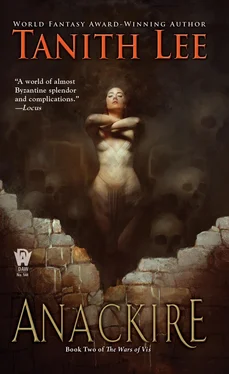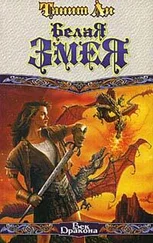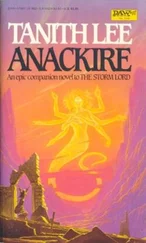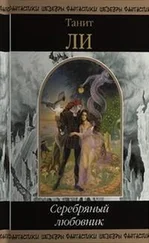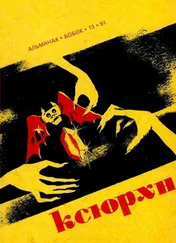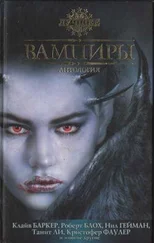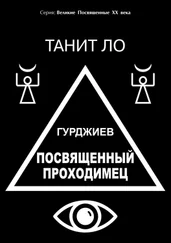An hour after this charitable deed, he was summoned to the under-palace.
The rain fell like arrows on the streets, and in the open court. Kesarh came striding at him out of the downpour, and began to speak to him while they drowned, and lightning curled in a wedge of purple light over their heads.
“He’s done something almost clever,” Kesarh said, and Rem knew he meant the King. “He’s thinking of recalling my sister to court. I value her. She could therefore be used against me.”
Rem nodded. Kesarh handed him a sealed packet.
“Take her this letter. Only to her, do you understand? Breakneck speed. Your mount’s over there, with cash to buy a new one if it drops dead under you.”
“Ankabek,” said Rem.
He did not want to return to Ankabek.
Kesarh looked at him, and Rem knew there was no choice. Again, it was not exactly fear. He had been trusted, trusted by something that could, with just as much facility, kill him minus a second thought.
The ride was wet all the way. The tall skies of the hill country roared, and the Ioli road was slick as sweetmeat.
On the coast the sea collided with the shore in quake. At first they would not put out for him. When he had bribed them enough, they rowed him cursing, but the waves had looked worse than they were.
After the usual preliminaries of landing, he was conducted on the long uphill walk to the temple, through a rain now red from sacred leaves.
He waited three hours in a stony building, trying to coax the fire to dry him, trying intermittently to find someone to whom to reiterate his urgent duty as messenger to the Princess Val Nardia.
Finally he gave up on both and fell asleep, and then they came and he had to follow them out again into the rain.
They led him to the temple, and in one of the two curving corridors performed their door-opening sorcery. His reluctance, when he thought he would have to re-enter the body of the temple, startled him. But in fact the way went down, this time, under the temple’s core, presumably. He ended up in an insignificant room, which was suddenly lit by the coming in of an apparition. He guessed at once he was for some reason meant to be affected, impressed. That did not diminish anything.
She was a priestess, a white-skinned Lowland priestess, with the Serpent’s Eye on her forehead. All the rest was gold, gold hair, gold robes of scales—like the curtain he recollected—gold eyes. Her eyelids and lips were golden, too, and her sails. She entered unannounced and merely stood before him, looking at him, and he felt something of his self-will give way at once.
“You were sent by the Prince Kesarh?”
“I was,” she said tightly. Her voice did not sound human. There was a resonance somewhere, not striking against him, but somehow . . . inside him.
“You have brought a letter for the Princess.”
All at once, he knew.
“What’s happened?” he said, “what is it?”
“Rarnammon,” she said. Just that, no other thing.
It appalled him, for there was no sense on earth for why she should know his given name. He was afraid, and would not question her. He said, “I’ll ask you again. What’s happened?”
“You will follow me,” she said, “and you shall see what has happened. Then you’ll return to her brother, and tell him what you have seen, and all you have been told.”
They walked through a long corridor, barely lit by slotted windows high above. Then through an iron door, as if to a dungeon. Steps went down, and below another door was opened for them by two of the hooded priests.
As before, Rem knew himself led, helpless and unwilling, toward some profundity. His head began to ring, he felt again something of the weird disorientation he had experienced in the boat, the world shifting; chaos.
There was smoke now, incense, unlike the incense of Ashara, more subtle, darker, permeating everything. (He had heard they did not use incense here.) A gauze curtain drifted aside. Another. The smoke, the curtains, sight, all misted together. The center of his body seemed empty, as if he were hollow. Chanting came from somewhere, all around it seemed, one word over and over, or did he imagine it—
Astaris. Astaris. Astaris .
Then the sound stopped. The mists cleared. They were going into quite an ordinary chamber, though lamplit and without windows. In the midst of the room was a bed or couch, with draperies drawn close.
The golden priestess, glittering from the lamps, clasped a tasseled cord, and the curtains slid away.
There on the bed lay the young woman Rem had sometimes glimpsed at Istris, even more frequently here, the Princess Val Nardia. She was asleep, her hair spilling around, saturating the pillows with its color. He noticed something else. Her belly lifted high under the black gown, the firm rounded lift of early pregnancy.
“Yes,” the priestess said, as if he had remarked on this. “Now go closer, touching nothing.”
Not wanting to, he did. So he beheld the terrible marks on the neck. Somehow, these people had remolded the face, disguising the bulge of the eyes, resettling the tongue within the mouth.
“Who did this?” Rem said. But he had no image of the King’s men somehow here and at the work.
“Val Nardia took her own life. She despaired. She had learned nothing.”
Rem started round on the woman, a gutter expression nearly on his lips. But he saw it was not lack of pity, but pity itself which had prompted the callous-sounding phrase.
Instead he asked, “When did she do this to herself—yesterday? today?”
“Some months past,” said the priestess quietly.
He began automatically to say that was not possible, and fell silent. At last he only said, “How have you preserved her like this?”
“Certain medicines, certain drugs. And yes, also methods the Vis would term magic. Things known to the ancient temples. But we don’t abuse her, Rarmon. Her body is empty, the spirit free. We retain her bodily life only that the child shall also live. When the child is ready, it will be brought forth. All of her will have death’s freedom then.”
He had flinched at her use of his abbreviated name almost more than at her use of the longer, older name. Sweat had broken out on him, though the room was cold.
“The child’s important. Important to you.”
“Important, certainly.”
“Why? How do you know?”
She smiled. He was surprised, for they did not often smile, the pure-bred of her race. They had suffered so in the past, for centuries, maybe that was why. This smile said gently, scornfully: You know our means . But she said to him, spreading her hands in a gracious mimicry of Vis theater: “Anackire.”
He glanced at the dead girl again, then away. Something was whispering in his brain, a memory he did not want, the brain-vision of three women, white-haired, dark-haired, scarlet, and of their wombs, which he had seen were filled.
“And the father,” he said matter-of-factly.
“Return to him and tell him,” she said, “what you’ve been shown, what I’ve spoken of.”
“You know the father’s her brother, then.”
“As you, also, Rarmon, know it.”
“Don’t call me that.”
“It is your name.”
He felt sick. He needed to be away from the room and went to the doorway.
“Not anymore.”
There were women in the outer chamber, he had not noted them before. Though nauseous, he was steadied now, as if by a blow, or icy water.
When they reached the upper passage, he said to her, for want of something else whereby to behave as if all this were normal, “I’ll take his letter back to him then.”
“As,” she said, “the other message was also taken back.”
Rem checked.
Читать дальше
